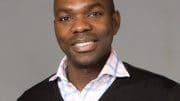In the world of finance, you and your colleagues are likely to have one clear thing in common: A good understanding of numbers. However, it is usually a disconnect between our experience and skillset which prevents many of us from achieving our true potential in life, where, often just one single negative belief about your lack of skill or capability can impact your entire career. Sandro Forte, Founder and CEO, Forte Financial Group describes to Zoya Malik, managing editor Director of Finance his views on what makes a winning mindset that’s needed to succeed
Whether you are working for a large corporation and are responsible for your own team members, or if you are working your way to the top or even thinking about starting your own financial practice, any form of self or professional development requires one key ingredient: Mindset.
CONDITION YOUR MINDSET FOR SUCCESS
To truly succeed within your career and to maintain consistent professional development, you need to condition your mind for success.
In fact, the key difference between success and failure is not talent or skill but developing your subconscious mind, creating an automatic and therefore unwavering belief that you will achieve your goals.
When faced with the consistent challenges of developing a high-powered career, or even in creating your own business, those who struggle with self-worth and self-belief are those more likely to quit. Those who embrace challenges and understand it to be part of their journey to success are far more likely to succeed in achieving their goals.
UTILISE MIND CHANGING TECHNIQUES
In the world of sports, coaches and psychologists have created a set of tools often used by athletes to achieve a desired result. These tools fall under the umbrella of ‘Mind Changers’ and can be used by anyone to achieve great outcomes.
A top example is the use of Flip Cards, which involves you writing down and reading through positive statements about your future, as though it has already happened. For example, “I am so delighted that I got my promotion” or “It feels great to have doubled my income”.
Taking the time to write down these statements in the past tense, and then reading through them morning and night will transform your mindset, resulting in both personal and professional growth. Don’t believe me? Try it – but be consistent and be sure to continue it for at least 30 days to see real changes in your life.
THE POWER OF PERSISTENCE
If you think of any successful individual – whether that’s someone in your professional or personal life – you will know that they have been both consistent in their approach and persistent in their resolve.
Being consistent means knowing what new habits you have to create and activate on a regular basis. Being persistent means whenever you fall over, stand up, dust yourself off and go for it again. Success is not comfortable and it’s not easy – but it is simple. If you focus on the process [the but you can control], rather than the outcome [the bit you can’t control].
If you ultimately remain consistent in working towards your goals and are prepared to persist until you attain what it is you are passionate about in life, you will always succeed.
Remember, Great people are just ordinary people with an extraordinary amount of determination.
EMBRACE CHANGE
For many people the concept of change is often associated with negative connotations, but in reality, it is change that enables us to really grow and develop as people, both in a personal and professional capacity.
In many work environments, the team members fearful of and unable to accept change, are those who will never move forwards, often impacting those around them, affecting morale and even creating a negative company culture.
Embracing change will help you evolve as an individual by presenting you with new challenges that will force you to adapt and progress towards your goals. Think about it: The last time you worried about an outcome, was it not as bad as first though when it finally happened?
KILL PROCRASTINATION
Procrastination is deep-rooted in the fear of failure and a lack of self-worth. However, looking at it positively, this ‘process’ protects us from negative experiences we believe will undermine our capabilities. In recognising this, procrastination is no longer the problem but rather the need to overcome self-doubt through a positive and focused mindset.
Remember, procrastination is fuelled by our sub-conscious desire to protect us from failure. To develop your career, you have to push past this feeling on a daily basis and reaffirm positive and determined beliefs, where procrastination has no place to thrive.
BE ACCOUNTABLE
There is a sense of freedom which comes with being accountable for your actions. The individuals able to understand and accept their mistakes, and even use them as a means of learning, are those far more likely to grow, develop and succeed.
Failure is nothing to fear; it is a natural human response to a challenge. Those who have achieved great levels of success simply understood the role that their previous failures played in helping them to achieve their goals and acted in spite of them: This is why mindset is key.





